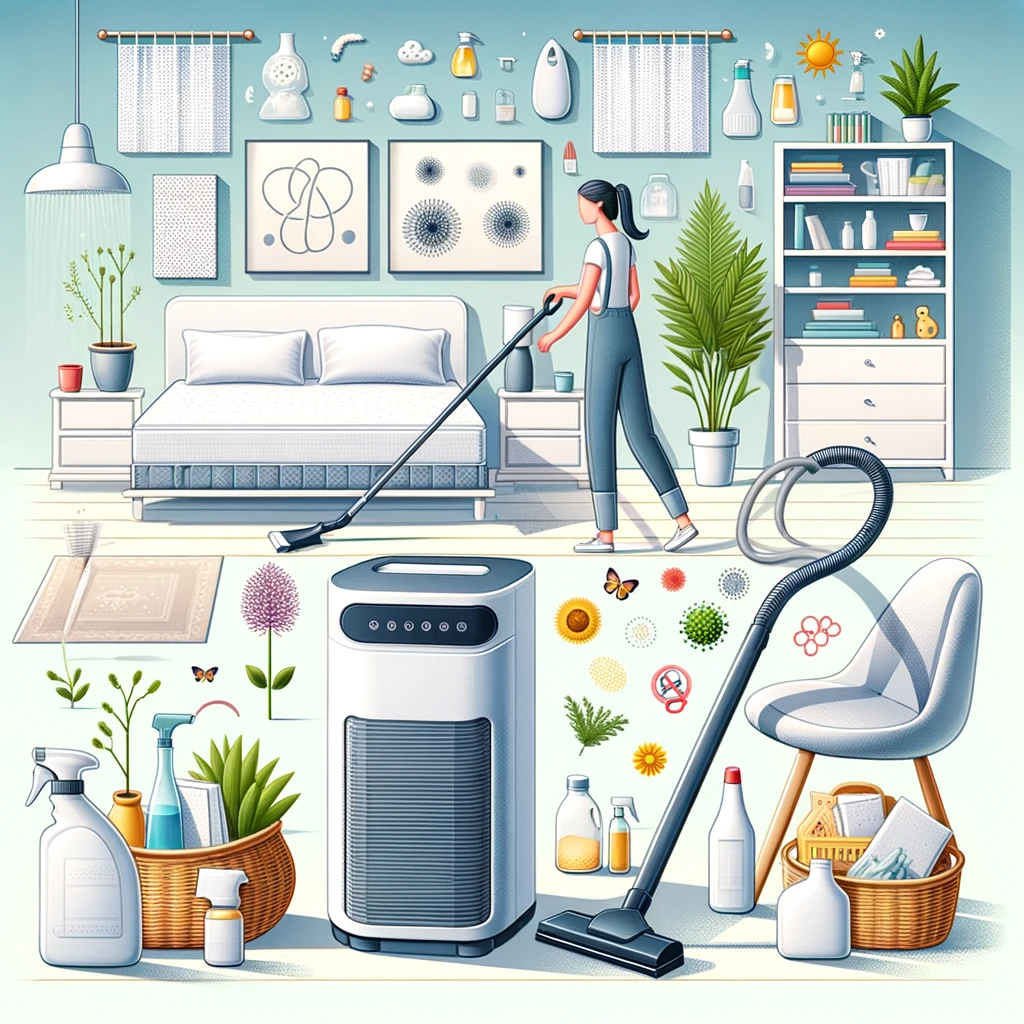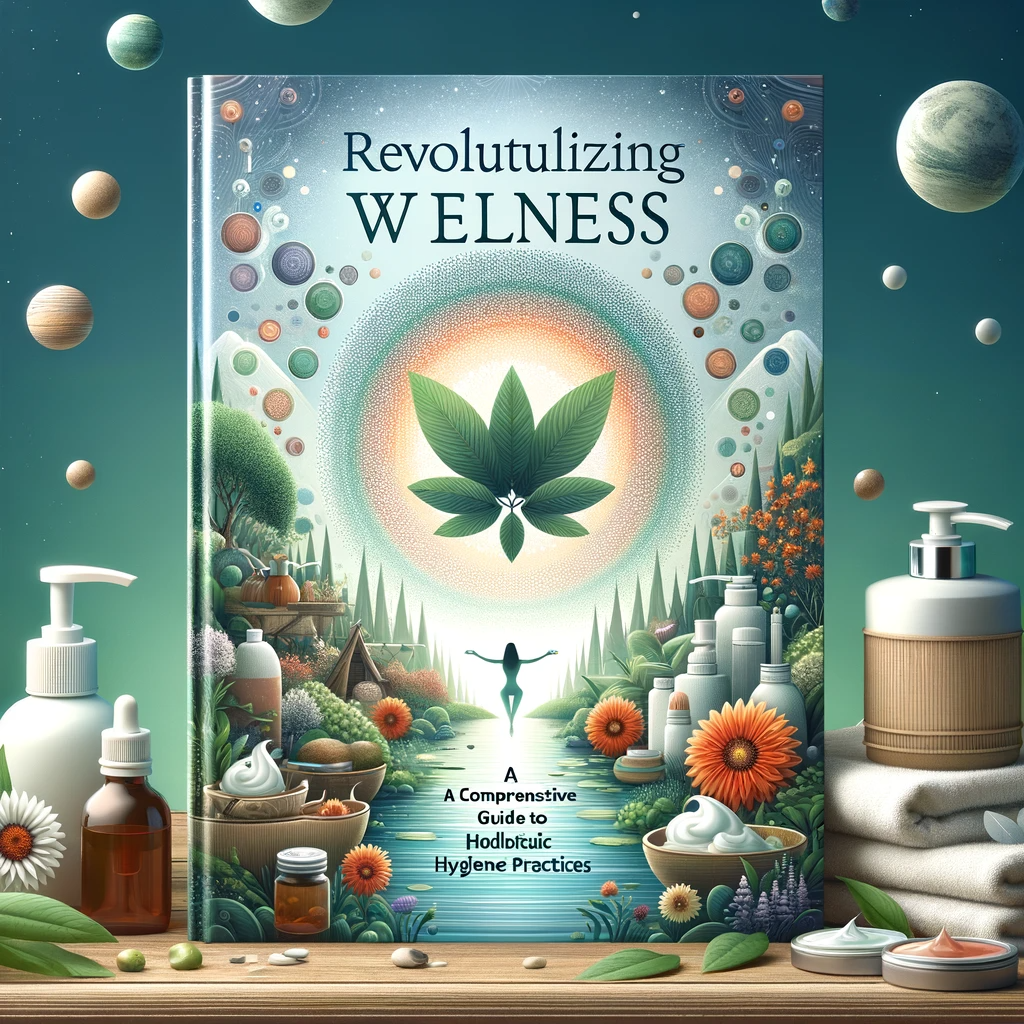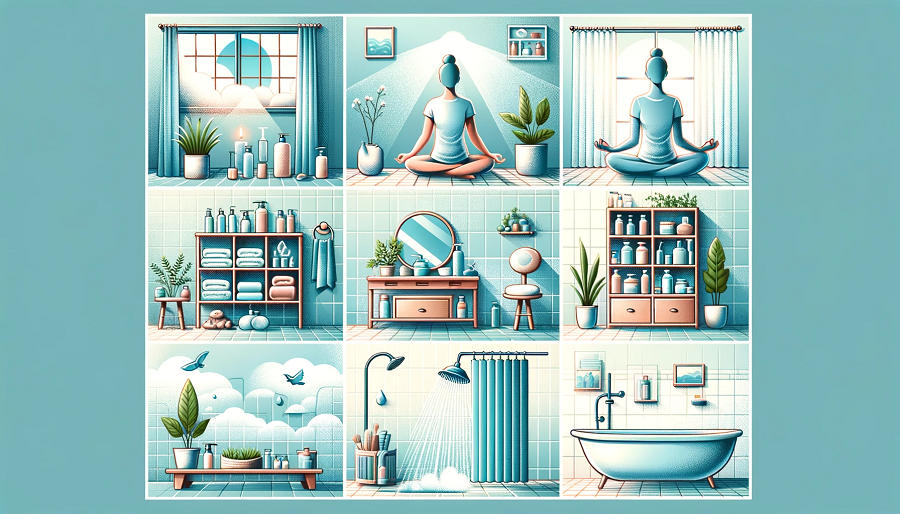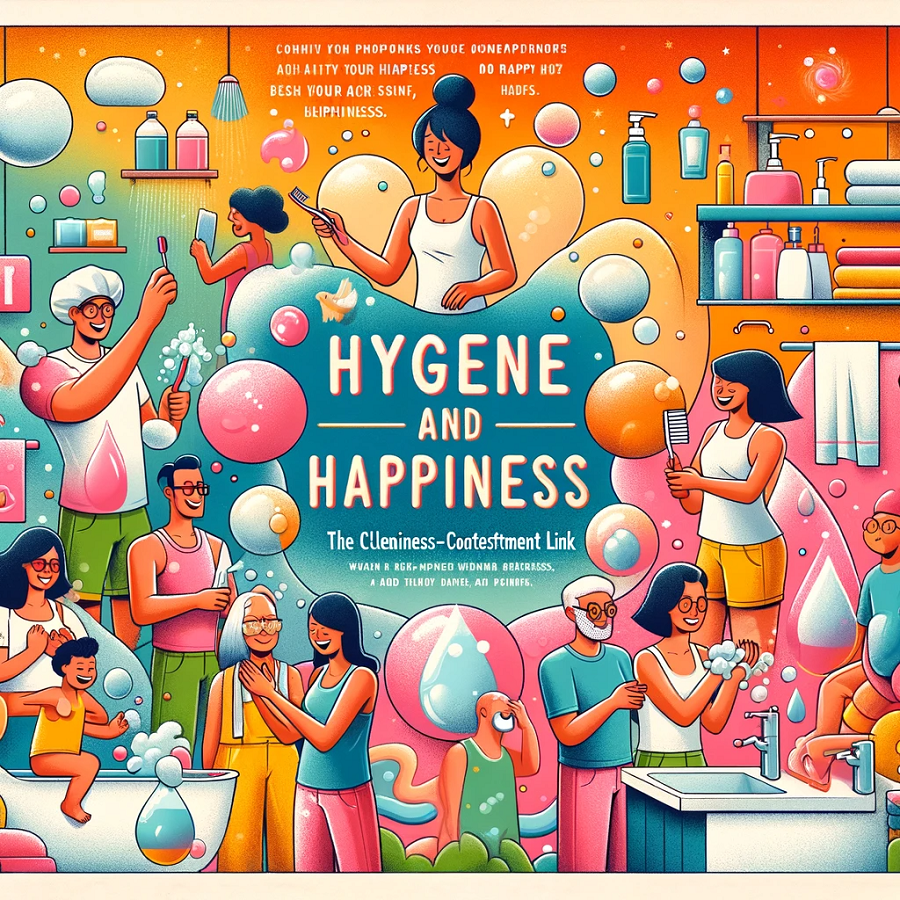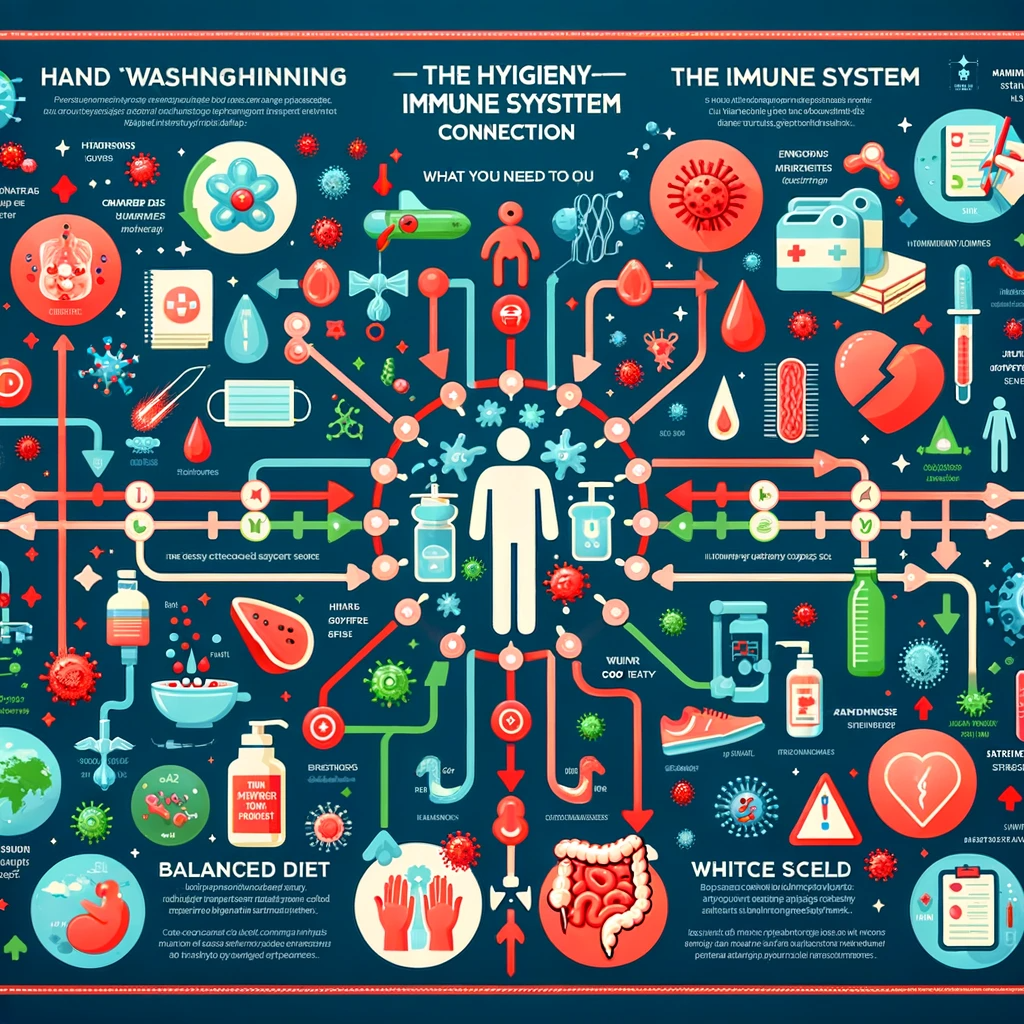In the pursuit of a healthier lifestyle, understanding the intricate relationship between hygiene and allergies is pivotal. This comprehensive guide delves into the various facets of maintaining cleanliness while managing allergies effectively. We’ll explore the underlying science connecting hygiene practices to allergic responses, offer practical advice on creating an allergen-free living space, and discuss the implications of the hygiene hypothesis on immune health. Moreover, we’ll evaluate the impact of household cleaning products on allergies, introduce natural cleaning alternatives, and provide essential tips for navigating public spaces with allergy considerations in mind. Whether you’re an allergy sufferer seeking relief or simply aiming for a healthier home environment, this guide offers valuable insights and actionable strategies to enhance your well-being through informed hygiene practices.
| Tip Category | Tips for Managing Hygiene and Allergies |
|---|---|
| Routine Cleaning | – Vacuum regularly with a HEPA filter. |
| – Use a damp cloth for dusting to avoid making allergens airborne. | |
| – Wash bedding in hot water weekly. | |
| Allergen-Proofing Home | – Use allergen-proof mattress and pillow covers. |
| – Choose hard flooring over carpets. | |
| – Maintain optimal humidity to prevent mold. | |
| Natural Cleaning Products | – Use vinegar and baking soda for cleaning. |
| – Avoid harsh chemicals and synthetic fragrances. | |
| Pet Allergy Management | – Bathe and groom pets regularly. |
| – Keep pets out of bedrooms and off furniture. | |
| Dealing with Public Spaces | – Carry hypoallergenic wipes and hand sanitizer. |
| – Wear a mask during high pollen seasons. | |
| Dietary Considerations | – Include foods that may strengthen the immune system. |
| – Be aware of food allergies and sensitivities. | |
| Professional Consultation | – Consult healthcare providers for persistent symptoms or severe allergies. |
| – Consider allergy testing if recommended. | |
| Home Renovations | – Replace carpets with hardwood floors. |
| – Use blinds or washable curtains to minimize dust accumulation. |
1. Hygiene and Allergies: Understanding the Connection
Introduction to Hygiene and Allergies
Firstly, it’s crucial to grasp how hygiene and allergies are intertwined. Allergies, essentially immune system responses to foreign substances, can be significantly influenced by our cleanliness habits. This connection forms the cornerstone of allergy management, emphasizing the importance of maintaining a clean environment to minimize allergens like dust mites, pet dander, and pollen.
Key Factors in Hygiene-Allergy Relationship
The hygiene hypothesis suggests that a lack of early exposure to germs might lead to a higher allergy risk. However, this doesn’t mean we should abandon cleanliness. Instead, it’s about finding a balance – ensuring our environments are clean but not sterile. Regular cleaning reduces allergens without overly sanitizing spaces to the point where our immune system lacks necessary exposure.
2. The Science Behind Allergies: How Cleanliness Plays a Role
Allergens and the Immune System
At a fundamental level, allergies occur when our immune system mistakenly identifies harmless substances as threats. Common allergens include dust, pollen, and pet dander. The cleanliness of our surroundings can either increase or decrease the presence of these allergens, thus impacting allergy triggers.
Minimizing Allergens Through Effective Cleaning
Effective cleaning routines are essential. This involves regular dusting, vacuuming with HEPA filters, and washing bedding in hot water to kill dust mites. It’s not just about the frequency of cleaning but also the methods used. For example, using a damp cloth for dusting can prevent allergens from becoming airborne.
3. Top Hygienic Practices to Reduce Allergy Symptoms
Routine Cleaning for Allergen Reduction
Consistency is key. Regular vacuuming, especially in high-traffic areas and on upholstery, can drastically reduce the presence of allergens. Additionally, prioritizing areas where allergens accumulate, like bedrooms, is vital.
Beyond Cleaning: Allergen-Proofing Your Home
Besides cleaning, allergen-proofing your home is effective. This includes using allergen-proof mattress and pillow covers, maintaining optimal humidity levels to prevent mold growth, and choosing hard flooring over carpets, which can harbor allergens.
4. Allergen-Free Homes: Steps for Maintaining a Clean Environment
Daily Habits for an Allergen-Free Home
Daily habits make a big difference. This includes removing shoes at the door to prevent tracking in pollen and dust, using air purifiers with HEPA filters, and regularly washing pets if they go outdoors.
Long-Term Strategies for Allergen Reduction
In the long term, consider renovations like replacing carpets with hardwood floors, using blinds instead of heavy drapes that accumulate dust, and opting for leather or vinyl furniture over fabric. Additionally, regular maintenance of HVAC systems helps in filtering out allergens from the air.
5. Balancing Cleanliness and Immune Health: The Hygiene Hypothesis
Exploring the Hygiene Hypothesis
The hygiene hypothesis posits that a lack of exposure to microbes in early childhood can lead to an underdeveloped immune system, increasing the risk of allergies. This intriguing concept suggests that some exposure to germs is essential for a robust immune response.
Implementing Balanced Hygiene Practices
Balanced hygiene involves regular cleaning to remove harmful pathogens while allowing some microbial exposure. This can be achieved by using natural cleaning products, avoiding overuse of antibiotics, and encouraging outdoor play for children, which exposes them to a variety of microbes.
6. The Impact of Household Cleaning Products on Allergies
Understanding Cleaning Products and Allergens
Many conventional cleaning products contain harsh chemicals that can aggravate allergies. These chemicals can trigger respiratory irritation and allergic reactions.
Choosing Allergy-Friendly Cleaning Products
Opt for hypoallergenic, fragrance-free cleaning products. Natural alternatives like vinegar, baking soda, and essential oils can be effective and less irritating. Always ventilate the area well when cleaning to reduce the inhalation of any irritants.
7. Natural Cleaning Solutions for Allergy Sufferers
Benefits of Natural Cleaning Solutions
Natural cleaning solutions are less likely to trigger allergic reactions. They are typically free from synthetic fragrances and harsh chemicals, making them a safer choice for those with allergies.
DIY Natural Cleaning Recipes
Simple recipes include using vinegar for glass cleaning, baking soda for scrubbing surfaces, and a mixture of lemon and olive oil for wood polishing. These ingredients are not only effective but also reduce the presence of allergy-triggering chemicals in the home.
8. Navigating Public Spaces: Hygiene Tips for Allergy Management
Challenges in Public Spaces
Public spaces can be challenging for allergy sufferers due to less control over cleanliness and exposure to various allergens.
Strategies for Allergy Management in Public
Carrying hypoallergenic wipes and hand sanitizers can help. Wearing a mask, especially during high pollen seasons, can also be beneficial. Being aware of indoor air quality and avoiding areas with strong fragrances or visible dust can further help in managing allergies in public spaces.
Final Thoughts:
Navigating the world of hygiene and allergies requires a balanced approach, blending informed cleaning practices with an understanding of how these factors impact our health. From implementing routine cleaning methods that minimize allergens to choosing natural and hypoallergenic cleaning products, each step plays a crucial role in creating a healthier living environment. The exploration of the hygiene hypothesis reminds us of the importance of balanced exposure to microbes for immune health, while practical tips for dealing with allergies in public spaces empower individuals to maintain their well-being outside the home. Ultimately, this guide serves as a comprehensive resource for anyone looking to reduce allergy symptoms and enhance their overall health through strategic hygiene and cleanliness practices. Remember, managing allergies is not just about reacting to symptoms but also about proactively creating a living space that supports your health and well-being.
Frequently Asked Questions (FAQs) on Hygiene and Allergies
- What is the hygiene hypothesis and how does it relate to allergies?
- The hygiene hypothesis suggests that a lack of exposure to germs in early life may increase the risk of developing allergies by preventing the proper development of the immune system. It emphasizes the need for a balance between cleanliness and necessary microbial exposure.
- How often should I clean my house to reduce allergy symptoms?
- Regular cleaning, at least once a week, is recommended to reduce allergens like dust and pet dander. Focus on high-traffic areas and places where allergens accumulate, such as bedrooms and living spaces.
- Can natural cleaning products really help with allergies?
- Yes, natural cleaning products are often free from harsh chemicals and fragrances that can trigger allergies. Ingredients like vinegar, baking soda, and essential oils can be effective alternatives.
- What are some tips for allergy-proofing my home?
- Use allergen-proof mattress and pillow covers, maintain optimal humidity levels to deter mold growth, opt for hard flooring over carpets, and use air purifiers with HEPA filters.
- Are there any specific cleaning methods that are better for allergy sufferers?
- Using a damp cloth for dusting can prevent allergens from becoming airborne. Vacuuming with a HEPA filter and washing bedding in hot water can also be very effective.
- How can I manage my allergies in public spaces?
- Carry hypoallergenic wipes and hand sanitizer, wear a mask during high pollen seasons, and avoid areas with strong fragrances or high dust levels. Being mindful of indoor air quality is also important.
- Do pets worsen allergy symptoms, and how can I manage this?
- Pets can carry allergens like dander and pollen. Regularly bathing and grooming pets, and keeping them out of bedrooms can help manage this issue.
- Can diet have an impact on allergies?
- Some studies suggest that certain foods can strengthen the immune system and potentially reduce allergy symptoms. However, individual responses can vary, so it’s advisable to consult with a healthcare provider.
- What should I do if my allergy symptoms worsen despite good hygiene practices?
- If symptoms persist, it’s important to consult a healthcare professional. They may suggest allergy testing, medications, or lifestyle adjustments.
- Is it possible to completely eliminate allergens from my home?
- While it’s challenging to completely eliminate all allergens, implementing the suggested strategies can significantly reduce their presence and impact on health.

